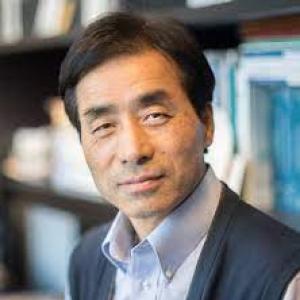 Meilin Liu, Regents’ Professor and Hightower Chair in MSE, has been awarded funding for two projects from the Department of Energy (DOE). These awards support innovative research that improves manufacturing and recycling capabilities for clean hydrogen systems and components.
Meilin Liu, Regents’ Professor and Hightower Chair in MSE, has been awarded funding for two projects from the Department of Energy (DOE). These awards support innovative research that improves manufacturing and recycling capabilities for clean hydrogen systems and components.
The DOE awarded $2.4 million for the first project, “Advanced Materials for High-Performance and Durable SOECs Based on Proton Conductors.” Dr. Liu will collaborate on this project with the University of North Dakota’s Energy & Environmental Research Center (EERC), and Georgia Tech will receive $1.7 million of the award.
This project focuses on enhancing proton-conducting solid oxide electrolysis cell (P-SOEC) performance and durability by incorporating new material sets not previously applied to P-SOEC systems.
Additionally, the DOE awarded $4.2 million for the second project, “Highly Efficient and Durable Low-Temperature O-SOEC Based on Engineered Ceria Electrolyte.” The project team includes Dr. Liu’s research group, the EERC, and Tennessee Technological University. Georgia Tech will receive $1 million of the award.
The second project will develop highly conductive and durable electrolytes and large-format cells paired with low-cost domestically produced metallic interconnects for oxide ion-conducting solid oxide electrolyzers (O-SOECs).
For both projects, Dr. Liu noted, “Our major objective is to explore how we can design materials that are more efficient, less expensive, and durable for generation of green hydrogen and electricity.”
Dr. Liu and his collaborators will use these novel materials to develop two different reversible solid oxide fuel cell systems that integrate hydrogen, solar, and wind power. The systems convert “excess” electricity into green hydrogen in the electrolysis mode and hydrogen to electricity in the fuel cell mode during periods of high energy demand. This approach improves energy conversion efficiency and bridges the gap between the remote areas where renewable energy is produced and the locations where it is consumed.
These collaborative projects draw on each team’s unique capabilities to advance the development of electrolyzers. Dr. Liu explained, “We’re making very small cells for the development of new materials, and we will not be able to produce a large system on our own. Our collaborators at the EERC will help us scale up the cells to create a larger fuel cell system. Then, we’ll be able to measure how these novel materials perform.”
“With these grants,” Dr. Liu said, “we will have the resources to build a very strong team to develop new material theories and methods to improve the efficiency of energy conversion and storage while reducing the cost.”